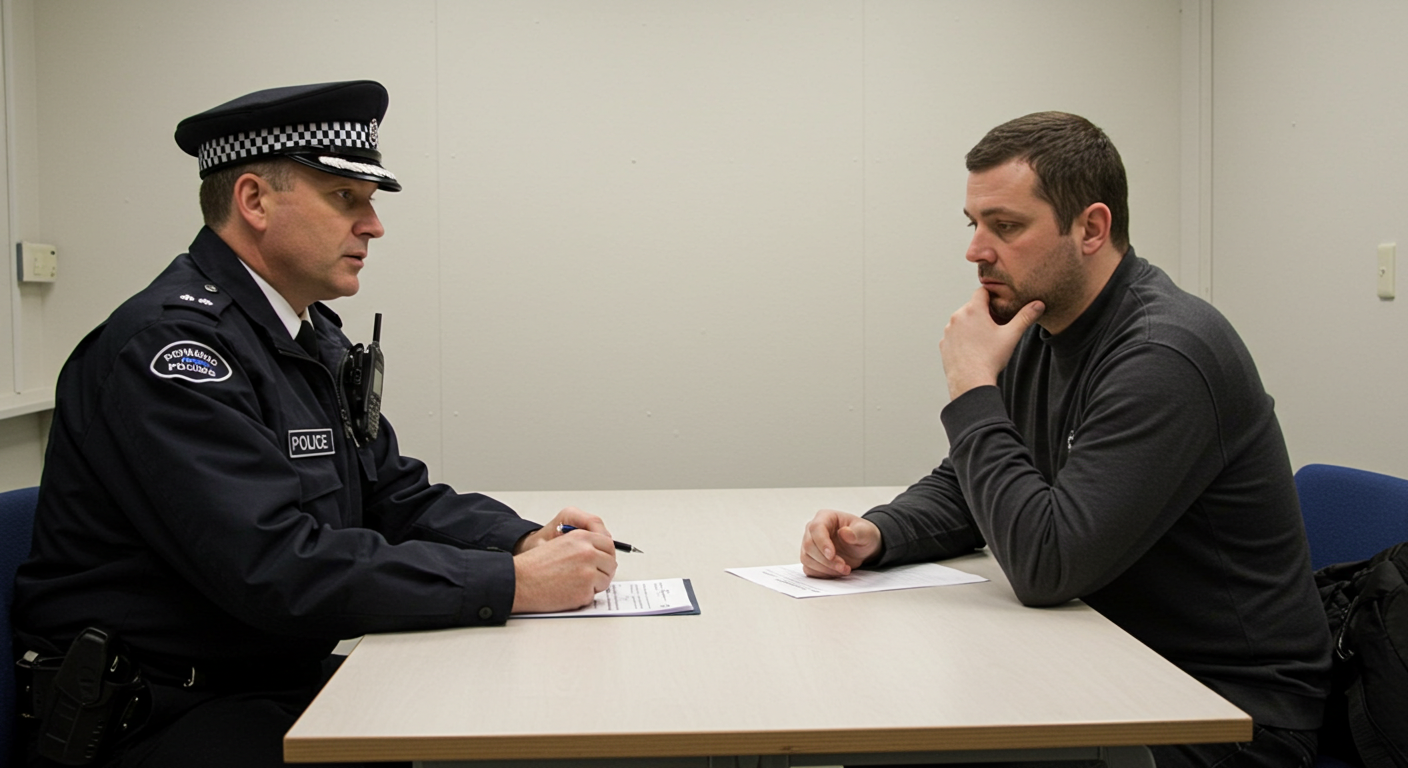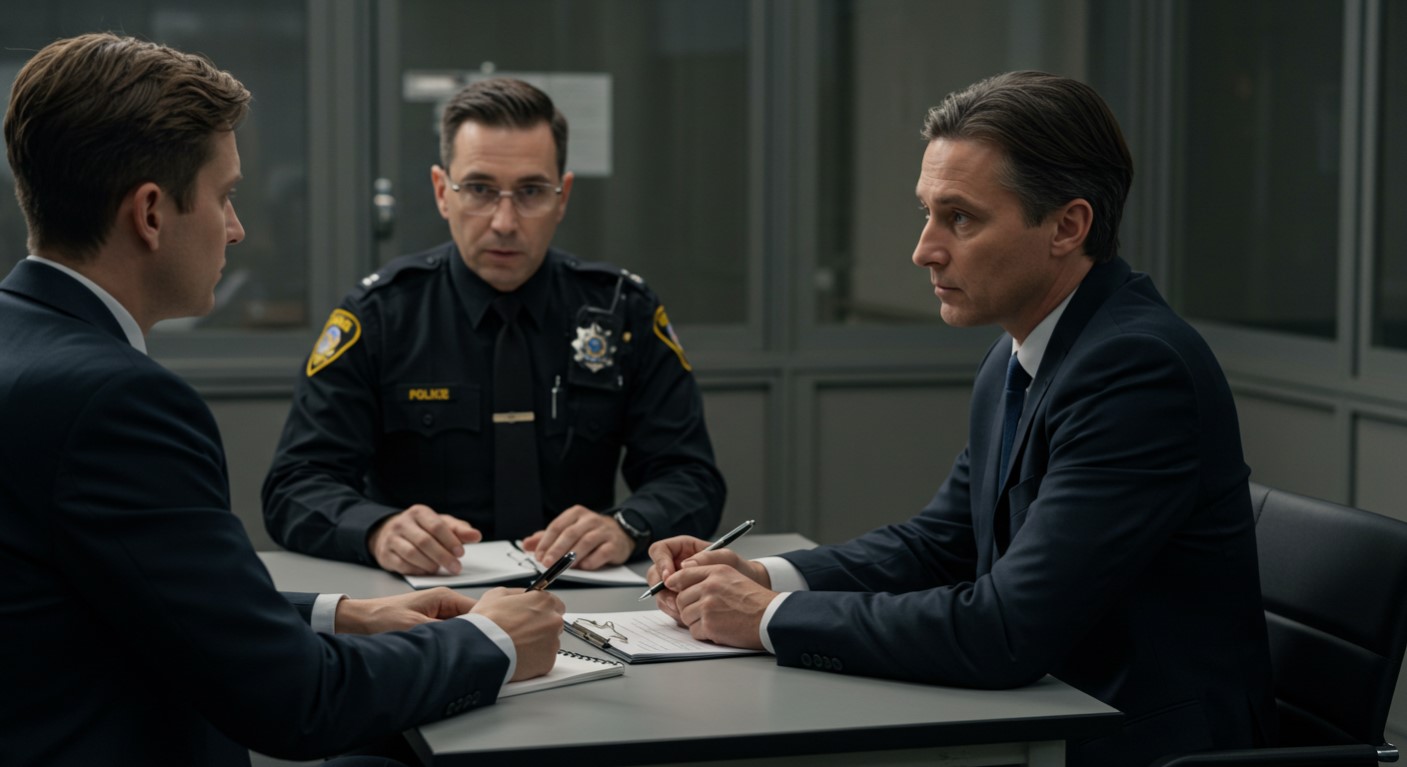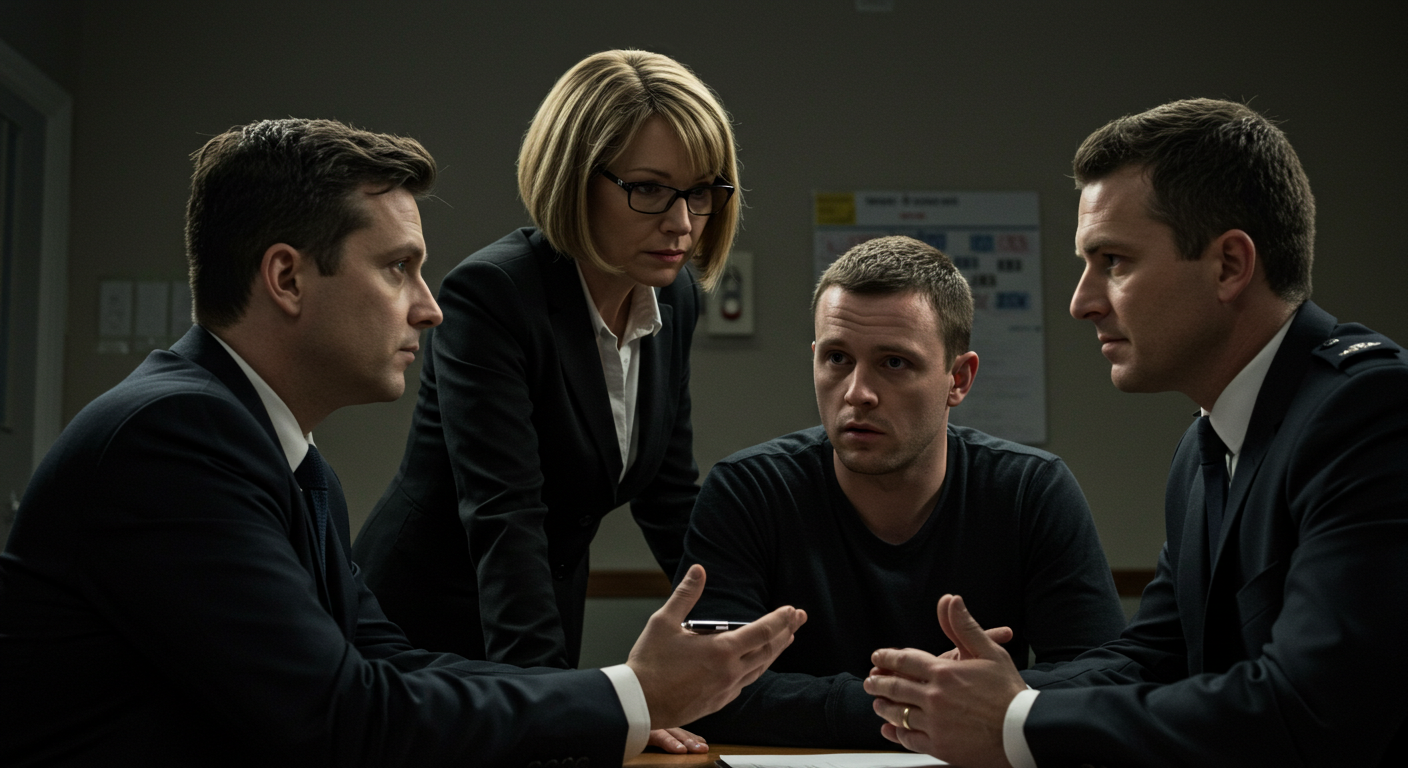Can I Be Charged without Being Interviewed by The Police?

Can I Be Charged without Being Interviewed by The Police?
When it comes to legal matters and potential criminal charges, it’s important to understand the procedures and your rights as an individual. One common question that arises is whether someone can be charged without being interviewed by the police. To address this, it’s essential to first understand what an interview by the police entails and its purpose.
An interview by the police is a formal process where law enforcement officers question individuals regarding their involvement in a particular crime or incident. The purpose of such interviews is to gather evidence, obtain necessary information, and establish whether there are grounds for charging someone with an offence.
In general, individuals cannot be charged without being interviewed by the police. The arrest and charging process usually involves conducting a police interview to establish facts and gather evidence. However, there are exceptions to this general rule.
Understanding the arrest and charging process is crucial. In most cases, the police will first arrest an individual based on reasonable suspicion or with a court-issued warrant. Subsequently, during the interview process, the police will inform the person of the specific charges against them.
It’s important to note that individuals have certain rights during an interview. These rights include the right to remain silent, the right to legal representation, and the right to consultation before providing any statements. These rights serve to protect individuals from self-incrimination and ensure a fair legal process.
Being charged without an interview can have potential consequences. It may impact the fairness of the proceedings, as the accused may not have had an opportunity to present their side of the story or address any misunderstandings during the interview.
It can also prejudice the accused, as their statements and perspectives may not have been properly considered.
What is an Interview by the Police?

An interview by the police is a formal conversation that takes place between a law enforcement officer and a person who is suspected of committing a crime or who may have information relevant to a criminal investigation.
During the interview, the police officer will ask questions to gather information, establish facts, and determine the person’s involvement or knowledge in the case. The purpose of the interview is to obtain evidence, clarify details, and possibly gather a confession.
It is important to note that an interview by the police is different from being charged with a crime, as being charged usually occurs after an investigation and the decision of a prosecutor.
What is the Purpose of an Interview?
The purpose of an interview conducted by the police is to gather information and evidence related to a crime. It allows the police to ask questions and gather statements from individuals who may have knowledge or involvement in the case.
What is the purpose of an interview? The aim is to obtain accurate and reliable information that can help in the investigation and potentially lead to the identification or apprehension of suspects. The purpose of the interview can also be to establish the credibility or credibility of a witness, or to gather evidence that can be used in court proceedings.
The purpose of the interview is to aid in the process of solving the crime and bringing the perpetrators to justice.
Can I Be Charged Without Being Interviewed by the Police?
Understanding the Arrest and Charging Process
Understanding the arrest and charging process is crucial when it comes to your rights during police investigations. When you are taken into custody, it is natural to wonder if you can be charged without undergoing an interview with the police.
In most situations, a police interview is required before they can formally charge you, as it plays a vital role in the legal process. However, there are exceptions to this general rule. For instance, if there is ample evidence to support the charges, an interview may not be necessary.
Regardless, it is of utmost importance to acquaint yourself with your rights during an interview. These rights include the privilege to remain silent and the entitlement to have legal representation present.
What Are My Rights During an Interview?

The Right to Remain Silent
The right to remain silent, also known as The Right to Remain Silent, is a crucial aspect of legal rights during a police interview. This fundamental right allows individuals to refrain from answering questions that may incriminate them.
By exercising The Right to Remain Silent, individuals protect themselves from self-incrimination and maintain their innocence until legal representation is present. It is essential to understand The Right to Remain Silent and be aware of its implications.
Not only does it prevent potential harm to the accused, but it also ensures fairness in legal proceedings. By exercising The Right to Remain Silent, individuals can maintain their constitutional protections throughout the interview process.
The Right to Legal Representation
During a police interview, individuals have the right to legal representation. The right to legal representation ensures that an individual is provided with the opportunity to seek advice from a lawyer during the interview process.
Legal representation is crucial in protecting the individual’s rights and ensuring a fair and just investigation. By having a lawyer present, individuals can receive guidance on how to answer questions and can be advised on their legal rights. This helps to level the playing field and ensures that individuals are not taken advantage of during police interviews.
The Right to Consultation
During a police interview, individuals have the right to consultation, which allows them to seek advice or guidance before answering any questions. The right to consultation ensures that individuals are fully aware of their rights, including the right to remain silent or the right to legal representation.
Seeking consultation with a legal representative is crucial as it provides individuals with the necessary understanding of the potential consequences and implications of their statements. By exercising the right to consultation, individuals can make informed decisions that safeguard their interests and navigate the interview process effectively and confidently.
What Are the Potential Consequences of Being Charged Without an Interview?

Impact on Fairness of Proceedings
The fairness of proceedings can be significantly affected when individuals are charged without being interviewed by the police. The interview plays a critical role in allowing individuals to present their side of the story and provide important facts or evidence, thereby ensuring a fair and balanced assessment of the situation.
This opportunity is essential to avoid prejudice against the accused and any potential violation of their rights. Without an interview, there is a risk that relevant information may be overlooked, leading to unjust outcomes and undermining the overall fairness of the proceedings.
Prejudice to the Accused
Being charged without an interview by the police can result in potential prejudice to the accused. This can have a negative impact on the fairness of proceedings and undermine the accused’s right to a fair trial.
Without the opportunity to provide their side of the story or present evidence, the accused may face difficulties in defending themselves adequately against any potential prejudice. It is crucial for individuals to have a clear understanding of their rights during an interview, including the right to legal representation and consultation.
Being aware of these rights can help safeguard against any potential prejudice to the accused and ensure a fair and just outcome in the criminal justice system.
Frequently Asked Questions
Can I be charged without being interviewed by the police?
Yes, it is possible to be charged without being interviewed by the police. In some cases, the police may gather sufficient evidence to initiate charges without the need for an interview.
What is a confiscation warrant?
A confiscation warrant is a legal document issued by a court that authorises the police to seize and confiscate specified items, such as computers, as part of a criminal investigation.
Do I have to attend a police station if I’m not arrested?
No, you do not have to attend a police station unless you have been arrested. Without an arrest, you are not legally obligated to participate in a police interview.
Should I contact a criminal lawyer before participating in a police interview?
Yes, it is highly recommended to seek legal advice and contact a criminal lawyer before participating in a police interview. They can help ensure your rights are protected and provide legal representation during the interview process.
Can I be arrested based on suspicion or having information about an offence?
No, the police cannot arrest you simply because you might have information about an offence. To be arrested, there must be reasonable grounds to suspect that you have committed a crime.
What happens after a police interview?
After a police interview, the police will determine whether or not to charge you. If you are charged, they may release you on bail, or if not released, you must be taken to court as soon as possible. It is important to consult with a criminal lawyer to guide you through the process.
Notice: Informational Content Disclaimer
The content provided on this website, including articles, blog posts, and other informational materials, is intended for general informational purposes only. It is not intended as, and should not be considered, legal advice.
Visitors to this website should be aware that the information presented here is not a substitute for seeking legal advice from a qualified solicitor or legal professional. Each individual's legal situation is unique, and the information provided may not be applicable to specific circumstances.
If you require legal advice or have specific legal questions, we encourage you to contact us directly. Our experienced team of solicitors is here to assist you with your legal needs and provide tailored advice to address your concerns.
Please be advised that any communication through this website, including the use of contact forms or email, does not create a solicitor-client relationship. Confidential or time-sensitive information should not be sent through this website. To establish a solicitor-client relationship and discuss your legal matters in detail, please contact us for a consultation.
We strive to provide accurate and up-to-date information, but we make no representations or warranties regarding the accuracy, completeness, or suitability of the information contained on this website. We shall not be liable for any reliance placed on the information provided herein.
Thank you for visiting our website. We look forward to the opportunity to assist you with your legal needs.




